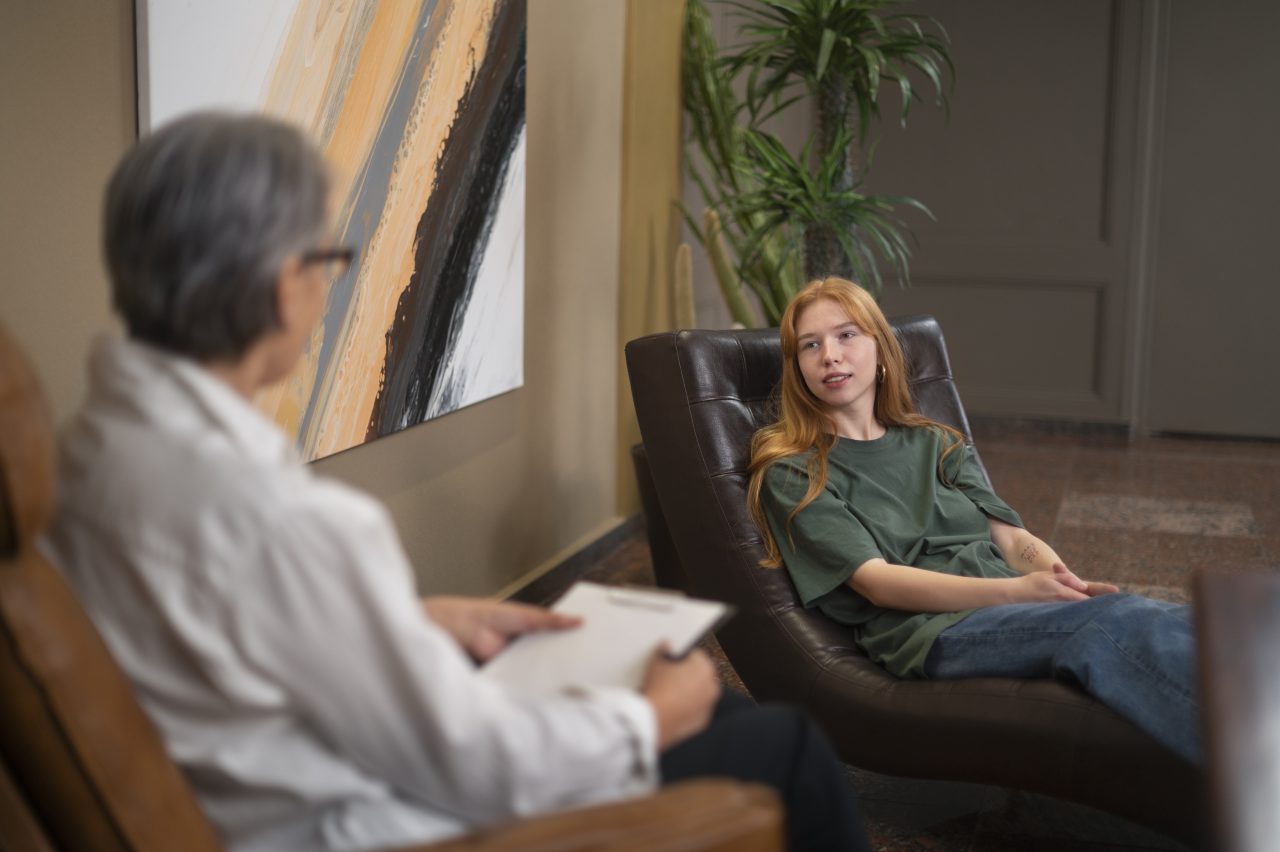What to Expect in Your First Therapy Session: A Beginner’s Guide for Saudis

Strong 8k brings an ultra-HD IPTV experience to your living room and your pocket.
Walking into your first therapy session can feel like stepping into the unknown. For many Saudis, where talking about mental health is still a new frontier, the idea of sharing personal thoughts with a stranger might seem daunting. But don’t worry—this guide is here to walk you through what happens in that first session, tailored just for you. Whether you’re exploring anxiety disorder treatment or simply want to understand your emotions better, you’ll leave this page feeling ready to take that brave first step.
Why Therapy Is Gaining Ground in Saudi Arabia
Mental health is no longer a taboo topic in the Kingdom. Thanks to efforts like the National Center for Mental Health Promotion, more Saudis are turning to therapy to tackle stress, family pressures, or even personal growth. Therapy is like a quiet coffee shop chat—except it’s with someone trained to help you sort through life’s challenges. Knowing what to expect in your first session can make it feel less like a leap and more like a natural next step.
What Goes On in Your First Therapy Session?
Think of your first session as a “getting-to-know-you” moment. It’s less about diving deep and more about laying the groundwork. Here’s a peek at what usually happens:
• Hello and Paperwork: Your therapist will greet you warmly and explain their role. You’ll likely fill out a few forms—think contact info, a bit about your health, and why you’re there. Many Saudi clinics now use online forms to save time.
• Chatting About You: Expect questions about your life, like your job, family, or daily routine. They might ask about your past or what’s stressing you out. It’s not prying—it’s about understanding your world.
• Your Goals: Why are you here? Maybe you’re wrestling with sadness or seeking obsessive compulsive disorder treatment. You’ll share what you hope to gain, like better sleep or stronger relationships.
• Setting the Vibe: The therapist will explain how sessions work—how long they last (usually 45 minutes), what confidentiality means, and whether you prefer Zoom or a cozy office in Riyadh. Online therapy is a big hit in Saudi for its flexibility.
• Building Comfort: This session is about feeling safe. You don’t have to spill everything. The therapist will nudge the conversation gently, letting you share at your own pace.
Questions You Might Hear
Therapists ask questions to get a sense of you. Don’t stress—they’re not quizzes. You might hear:
• What’s brought you here today?
• Ever tried therapy before?
• Any specific challenges, like stress at work or family stuff?
• How’s your mood these days?
• What do you want to work toward?
Feel free to pause or skip questions. It’s your space, and honesty comes when you’re ready.
How to Get Ready for Your First Session
A little prep can go a long way. Here’s how to set yourself up for success, Saudi-style:
• Think It Over: Jot down what’s on your mind—maybe it’s feeling overwhelmed or tension at home. A quick list keeps you focused.
• Pick Your Spot: For online sessions, find a quiet corner away from family chatter. If you’re heading to a clinic in Jeddah or Dammam, get there early to settle in.
• Ask Away: Got questions? Ask about the therapist’s style or how they respect Saudi traditions. Try, “How do you handle family-related stress for Saudis?”
• Go Easy on Yourself: Share what feels right. Therapists here get the importance of privacy and cultural values.
• Check Your Calendar: Sessions are often weekly. Look at your schedule—many therapists offer evening slots for busy folks.
What to Bring
You don’t need a suitcase, just:
• A small notebook for thoughts or questions.
• Any health records, if they apply.
• An open heart—progress takes time, and that’s okay.
How You Might Feel
Your emotions might do a little dance around your first session. Here’s what’s normal:
• Butterflies: Feeling nervous about opening up? Totally common. Therapists know how to ease you in.
• A Weight Lifted: Even a small chat can feel like unloading a heavy bag.
• A Bit Raw: Sharing can feel exposing, but it gets easier.
• Wiped Out: Therapy can tire you emotionally. Grab some tea and rest afterward.
If you feel a bit off at first, don’t panic. Stirring up emotions is part of the process, and things often settle with time.
Therapy and Saudi Culture
Saudi life revolves around family, faith, and community, and therapists here get that. They weave cultural sensitivity into sessions, like:
• Family Matters: If family expectations weigh on you, your therapist might explore how to balance duty and personal needs.
• Keeping It Private: Confidentiality is ironclad, which matters in tight-knit communities.
• Gender Comfort: Prefer a same-gender therapist? Many clinics offer this option.
• Faith-Friendly: Love your faith? Some therapists blend Islamic practices, like dua-based mindfulness, into sessions.
Busting Therapy Myths
Let’s tackle some misconceptions floating around:
• Myth: Therapy’s only for big problems.
Truth: It’s for stress, growth, or anything in between.
• Myth: Therapists judge you.
Truth: They’re trained to listen with kindness, not judgment.
• Myth: You’ll feel fixed right away.
Truth: It’s a journey, but the first session starts it off.
• Myth: Therapy clashes with Saudi values.
Truth: Many therapists align with your cultural and religious roots.
Is Your Therapist the Right Match?
A good therapist feels like a trusted guide. After your first session, reflect:
• Did I feel listened to?
• Did they respect my values and culture?
• Can I imagine opening up more?
Not clicking? No problem. Clinics in Riyadh or Dammam often offer free consultations to find someone who feels right.
Making Therapy Work for You
Want to get the most out of it? Try these:
• Show Up Regularly: Even slow progress adds up with consistent sessions.
• Try the Extras: Therapists might suggest journaling or breathing exercises. Give them a shot.
• Speak Up: If something’s off, tell your therapist—they’ll tweak things.
• Stay Patient: Big changes take time, especially for deeper issues.
FAQs About Therapy in Saudi Arabia
How long until therapy helps?
It varies. Some feel better in a few months; others need more time. About 15-20 sessions often help with everyday concerns.
Is therapy private in Saudi Arabia?
Absolutely. Therapists keep your info locked tight, except in rare cases like safety concerns. Ask for their confidentiality policy.
Can I do therapy online?
Yes! Online therapy is super popular in Saudi—it’s flexible and just as effective.
What if my therapist isn’t a good fit?
You can switch anytime. Many clinics offer free meet-and-greets to find the right therapist.
Wrapping Up
Your first therapy session is a bold move toward a healthier you. In Saudi Arabia, therapists are ready to meet you where you are, with respect for your culture and faith. Prep a little, keep an open mind, and give it time—you’ll find therapy can be a game-changer. Whether you’re in Khobar, Makkah, or anywhere else, that first step is yours to take. You’ve got this!
Note: IndiBlogHub features both user-submitted and editorial content. We do not verify third-party contributions. Read our Disclaimer and Privacy Policyfor details.







